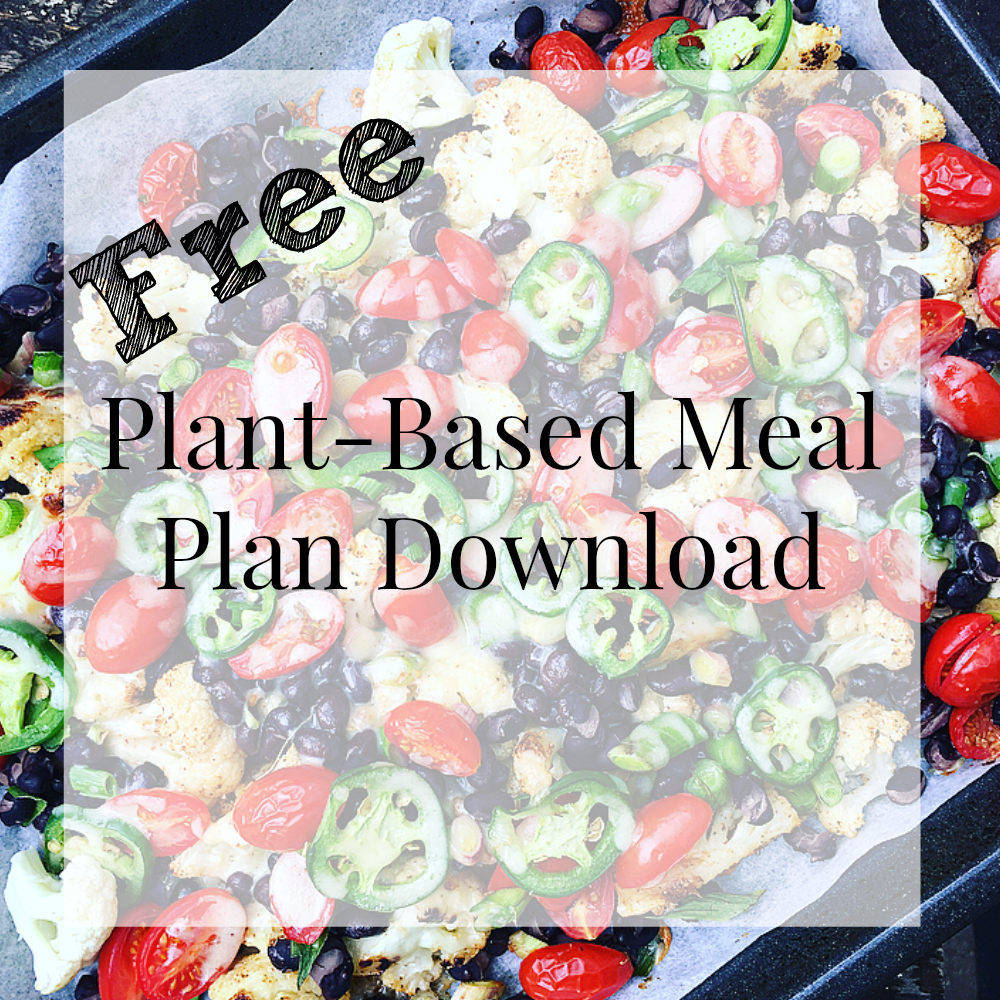If you’ve ever Googled “what is a plant-based diet” and came away more confused than when you started, you’re not alone.
Who knew there were a million answers to that question?!
Rather than describing a specific pattern of eating, like veganism, it’s more of an umbrella term that covers different types of diets that emphasize one thing: eating mostly plants. While that looks a little bit different for every {one} body, we ALL reap the benefits from incorporating more plants into our diet.
The #1 question I get when around plant-based eating is always the same:
"Where do you get your protein?!?"
First, you don’t necessarily need to give up animal-based foods if you don’t want to. Secondly, let’s think about this for a minute. Where do some of the worlds largest living things get their intense strength and power?
I'm taking elephants. Giraffes. Rhinoceros. Gorilla. Hippopotamus. Elk. and when they roamed the Earth, Tons of DINOSAURS.
Yup, you guessed it! Plants!
One cup of lentil soup will deliver nearly 20 GRAMS of protein. When combined with a balanced diet, deliver a complete protein profile, which is exactly what the body needs.
A diet comprised of 100% plants isn't for everyone.
What IS for everyone are the benefits we reap from incorporating MORE plants into our diet. Plant foods are packed full of fiber, water, phytonutrients, antioxidants and micronutrients that the body needs to give us optimal energy, regularity, increase immunity and maintain a healthy weight.
There’s a good change you are already incorporating more plant-based protein than you realize!
Check out some of these delish sources of plant-based proteins. Prepare to be surprised!
Beans (kidney, black, garbanzo/chickpea, white, lima, etc) dried and cooked or drained & rinsed
Lentils, cooked & drained
Edamame, shelled, organic
Tofu, organic sprouted if possible
Tempeh, organic
Seitan, organic
Green peas
Hemp Hearts
Unsweetened nut butters (peanut, almond..)
Nuts; peanut, almond, macadamia, walnut, brazil, pistachio, cashew, hazelnut, pecan
Seeds; chia, pumpkin
Wild rice
Nutritional yeast
Quinoa
Spirulina
Steel cut or whole (not quick cook) oats
Protein powder, vegan; to add to smoothies
And, even these powerful green plants carry 2-5 grams per 1 c serving:
Organic, sweet corn
Broccoli
Broccoli rabe
Potato
Avocado
Spinach
Brussel sprouts
Kale
Zucchini
Portobello mushrooms
Hubbard squash
Collard greens
With all of this said, there’s no rule that says you have to label your eating style.
There are as many diets as there are people on the planet -- each as unique as you are. The most important thing is to find a way of eating that makes you feel fabulous, works for your lifestyle and one you can stick with for the long term. Eating more plants is one easy way to do that!
We know this can sometimes feel overwhelming, so we wanted to share a sample plant-centered meal plan with you! Get your free download, and browse our meal plans, HERE.
Let’s stay connected! Contact me any time, HERE!







